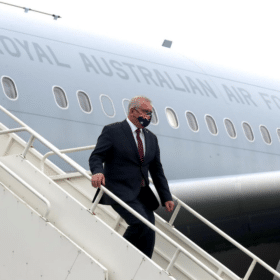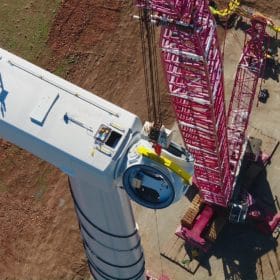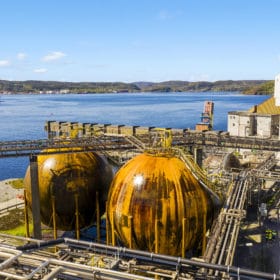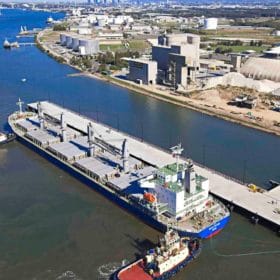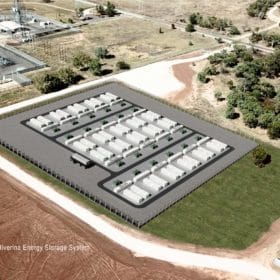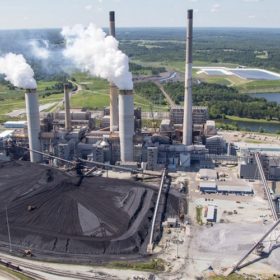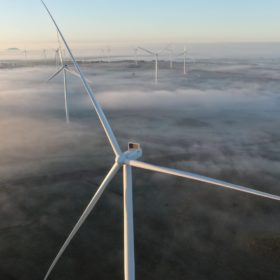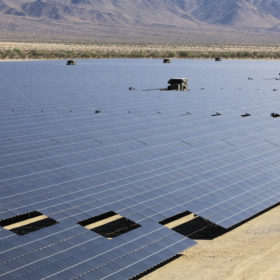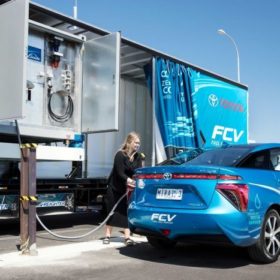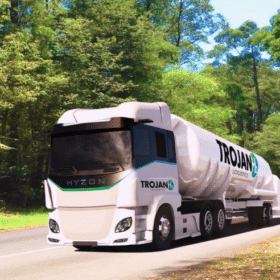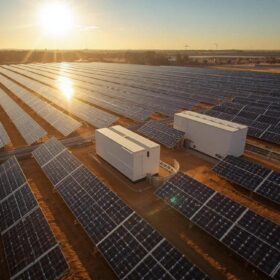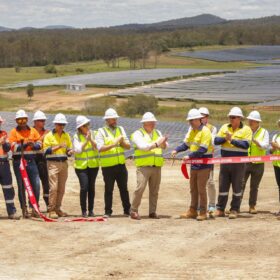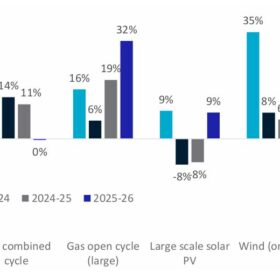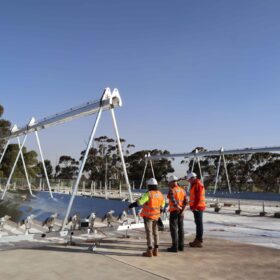Morrison blowing in the wind, sheltering in hydrogen ambitions at the G7 Summit in Cornwall
Alliances with Germany and Japan to develop and commercialise emissions-reducing technologies would be a coup for Australia, if there were any concerted efforts at home to reduce emissions in line with international initiatives, and transition Australian industries to be competitive in a carbon-pricing world.
Telstra dials up its renewable energy commitment
Telecommunications giant Telstra has continued it transition to renewable energy, signing a long-term agreement to purchase electricity from the Crookwell 3 Wind Farm being built near Goulburn in New South Wales.
Global powerhouses partner to develop clean ammonia value chain for shipping fuel
Commodity trader Trafigura and Oslo-based ammonia leader Yara International ASA have signed a Memorandum of Understanding that will see supply of clean ammonia as well as joint R&D projects as the two companies look to promote clean ammonia as a shipping fuel and develop its value chain and infrastructure.
Lion Energy sniffs green hydrogen potential and pads over to Queensland
Two significant Australian-based industrial corporations, which impact global transport and building sectors, have signed an MOU to explore green hydrogen opportunities in Queensland.
NSW Riverina in store for 100 MW / 200 MWh big battery
Murrumbidgee Shire in the New South Wales’ Riverina region is set for a big battery and big flexibility after Edify and Shell Energy came together on a deal that will see the realisation of the Riverina Energy Storage System.
Novel approach to turn coal plants into energy storage stations goes into testing
Funded by a United States’ Department of Energy grant, the project will evaluate Malta Inc.’s thermal energy storage system as a viable, scalable solution.
Victorian councils commit to renewable energy future
More than half of the Victoria’s local councils will soon be powered by renewable energy after they signed up to the largest emissions reduction project yet undertaken by local government in Australia.
First Solar & Nel Hydrogen to develop integrated PV-hydrogen power plants
First Solar and Nel Hydrogen Electrolyser AS have announced they will collaborate to develop power plant control and other supervisory systems as part of a broader plan to build integrated photovoltaic-hydrogen power plants.
Smart Energy Council reveals list of partners for its green hydrogen certification scheme
Australian peak body, the Smart Energy Council, has this morning revealed the details of the initial global and domestic partners for its hydrogen Zero Carbon Certification Scheme. The scheme seeks to provide a guarantee of origin for hydrogen, ammonia and other derivative products like steel, in preparation of Australia becoming a global hydrogen export hub.
Melbourne company signs deals to position itself as Australia’s leading carbon-free green hydrogen transporter
Melbourne-company Trojan H2 Logistics has today announced two separate industry deals to deliver both fuel-cell hydrogen transport trucks as well as hydrogen refuelling stations along Australia’s East Coast.
